12+ Sample Teacher Contracts
-
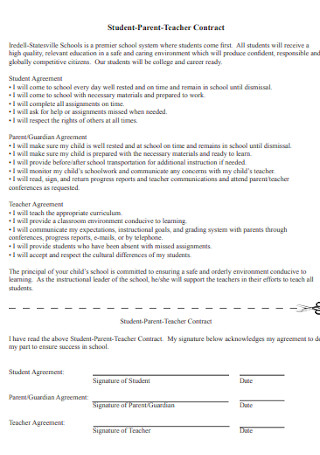
Student-Parent-Teacher Contract
download now -
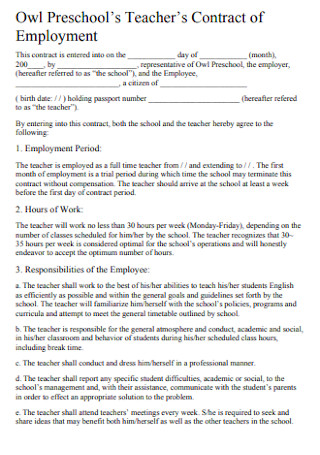
Teacher Contract of Employment
download now -
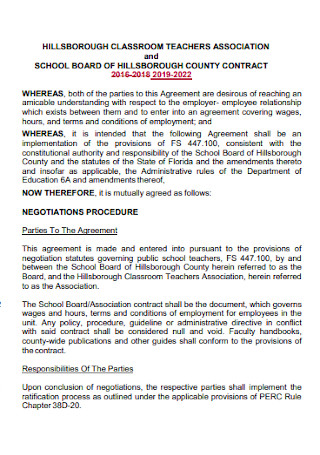
Classroom Teacher Contract
download now -
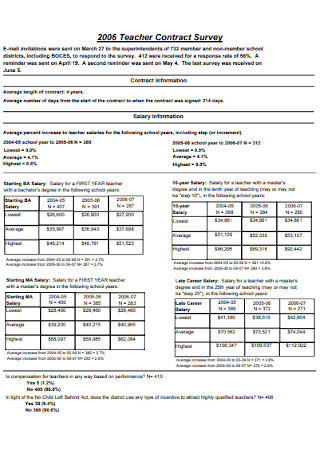
Teacher Contract Survey Template
download now -
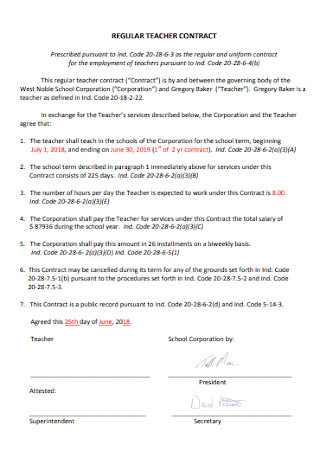
Regular Teacher Contract
download now -
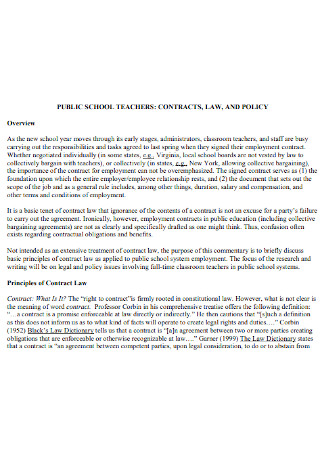
Public School Teacher Contract
download now -
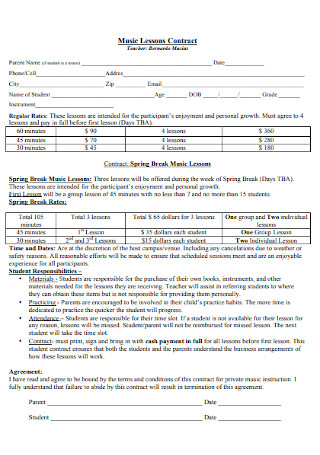
Music Teacher Lesson Contract
download now -
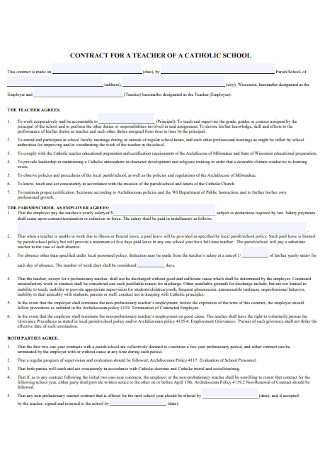
School Teacher Contract
download now -
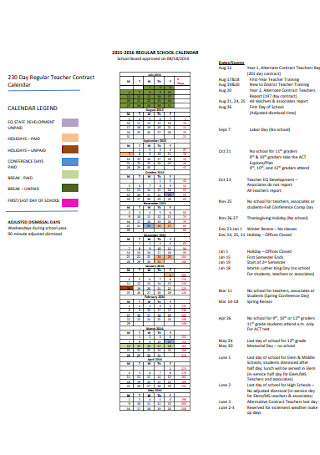
Regular Teacher Contract Calendar
download now -
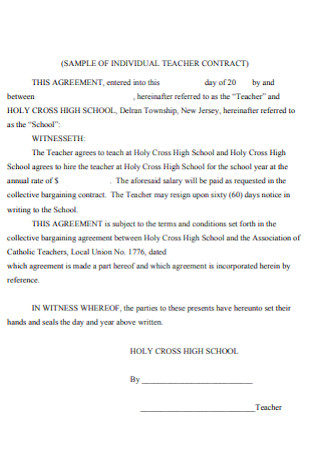
Individual Teacher Contract
download now -
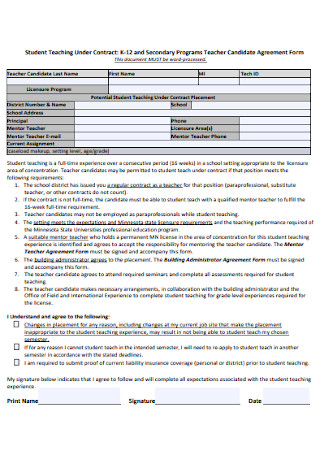
Student Teaching Under Contract
download now -
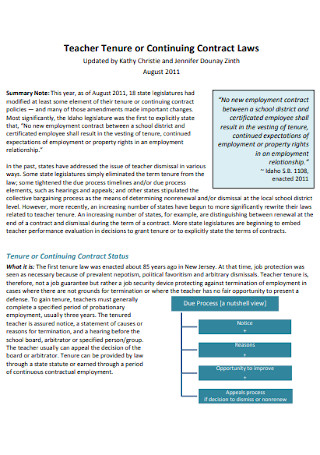
Teacher Tenure or Continuing Contract
download now -
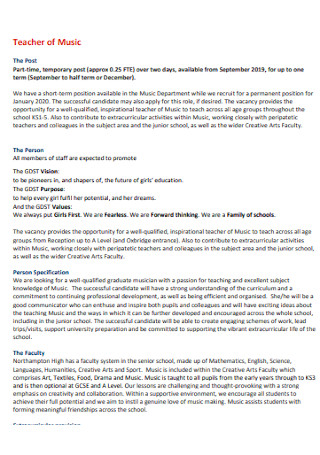
Part Time Teacher Contract
download now
For prospective teachers and especially those who are fresh graduates and still have no clue as to how the academic profession works, it is important to be aware of the kinds of duties and responsibilities besides academically inclined activities that one needs to accomplish as well as the kinds of conditions of employment that an applicant is potentially to work under. This article will then briefly discuss what a teacher contract is, what other forms it can take shape and the standard form of a teacher contract and specific conditions that function as the basic necessities a Teacher Contract must have and are generally shared in these varying contracts. The article also comes with 12+ Teacher Contract Samples that you can download and run through to get a more up-close look into how it is structured and you are free to take inspiration from as you create one of your own!
What is a Teacher Contract?
A Teacher Contract is a type of Employment Contract that, like most contracts, is a legally binding document between an aspiring teacher applicant and their academic institution of choice. It is more often than not a written document that outlines the terms and conditions that both parties have consented to agreeing and will fulfill once it is formally signed by the parties involved. It works in favor of the employer as it serves as their standard of employment for staff they are looking to hire and vice versa as it provides prospective academic instructors the knowledge of which duties and responsibilities they can fulfill and on what terms and the kind of environment they can work in.
It does not only work to define the obligations that a teacher must fulfil and the provisions that the school employers must cater to their teachers, but it also protects both parties from any type of labor disputes or breaches made in the contract since the document must also be able to state the rights and compensations or benefits that a teacher were to receive and actions that the school employer can take should the worst case scenario arise. It is essentially a recognition that an individual is to be employed and have a career as a teacher following the provisions expressed in the contract by the school district.
Three Basic Types of Teacher Contracts
Applicants for a career in the academe can expect to be employed under three types of contracts namely: Probationary Contracts, Terms Contracts and Continuing Contracts. These three types of contracts may vary in their conditions but a common denominator they all have is that an employer wants an applicant to teach for them during a specific time frame. For how long this duration will last is a key difference among these contracts and more information about them will be discussed below:
What is Inside a Teacher Contract
To be more familiar with what a Teacher Contract includes, we discuss below how Teacher Contracts are usually written and which sections are generally shared by these contracts despite the nature of the academic institutions, that is whether they are government-funded or private.
1. It must establish the parties involved.
While this is basic and pretty much self-explanatory, the contract must be able to identify the parties involved (i.e, name of the school district/school employer and name of the teacher applicant/employee) in the agreement that at the same time is also able to define them and provide the most basic employee information which for the applicant can include a report of their criminal history.
2. It must define the teacher’s job description and their teaching responsibilities.
The contract must extensively discuss the tasks, duties, and responsibilities that a teacher is expected to perform including activities that do not necessarily align with academic endeavors such as field trips, seminars, extracurricular activities and faculty and staff meetings where they might be tasked to make an input and fulfill additional tasks. The Contract should also be explicit about imposing their power to reassign and/or assign the teacher of a role that they might not have signed up for in the beginning or does not qualify as part of their basic job description. The contract shall also mention that the supplemental duties previously mentioned may be performed beyond working hours and without compensation. However, a clause may provide the teacher the right to deny the reassignment and if the extra duties require a significant amount of work, there shall be monetary or compensations offered otherwise, the teacher can legally file a grievance that shall only reject the imposition of the supplemental duty.
3. It must accurately state the employment period.
A crucial component of a teacher construct is the indication of the length of validity of the employment period which would follow after the type of contract is established. Not only that but the contract must be able to address other concerns such as how the district can have the right to terminate the teacher contract upon fair assessment made by the Board of Trustees that are usually based on good cause as in failure to meet the board’s standard conduct or a change in the program that no longer requires the service of the teacher. This decision must be supported by documents that justify the termination of the contract or the nonrenewal of the contract. However, the teacher can be granted to counter these decisions and appeal for an extension of their employment period through a request hearing where they will be given the right to due process and their case be cross-examined.
4. It must include the compensations/benefits.
A highlight of a Teacher Contract is the section that defines the monthly salary of the teacher and whether or not is listed before or after tax, the method through which this payment will be made and most importantly the benefits they will get to enjoy while on the job and after resignation if their contract guarantees it or even despite contract termination. An unpopular benefit in importance but popular for academic indulgence are the travel benefits a teacher may enjoy over the course of their stay with the academic institution. These funds do not necessarily mean funds used for personal vacations but rather activities that are academically inclined and deepen the teacher’s intellect. These academic endeavors can be research conferences, workshops and seminars through which a travel fund can support. The contract must also define the insurance that the teacher including even their families are entitled to which may involve health, dental, vision and overall medical insurance packages. There must also be a clause that states the teacher’s entitlement to file a medical or sick leave and be paid nonetheless with their status unaffected.
5. It must include a provision allowing the teacher to resign.
While the school board is more than welcome to consider null the teacher contract, the teacher must be granted the same right and this should be stated in the contract which they are to do so prior to a set of time established by the school employer which usually is 45 days before the first instructional day of the academic school year. Failure to comply with this requirement may bode negatively for the teacher and result in certification sanctions that at worst can be the nullification of their teaching license.
What is a Statement of Particulars?
A written statement of particulars is provided by the employer to all employees within two months since they’ve begun their job. It states a brief description of your job including the general terms and conditions of your employment (i.e., salary, pay rate, holiday entitlement, work location, hours of work, duration of employment contract) and the rest details the employee’s basic rights that an employer is obliged to cover. This legal document is usually provided in your contract of employment as it functions to protect both parties and risk furthermore contractual and labor disputes due to its nature of outlining the basic terms and conditions of employment.
FAQs
What is a Teacher Contract?
A Teacher Contract is any document that defines the conditions of employment of an aspiring academic instructor and the provisions on the school employer’s end that they shall deliver.
How many days is a teacher’s contract?
Depending on the kind of contract you are under, whether it be a Probation, Term or Continuing Contract, the minimum employment period of a teacher contract is usually one whole school year but with the planning before the school term starts and the grading period included, it can last for 39 weeks or around 180 days.
Can Teachers Resign Mid Year?
While it is not recommended to do so as it will fall as a breach of contract, there will be rare cases where teachers are granted approval to resign mid-year but that is only if they undergo a tedious process and with a sound reason to justify your case. This is therefore another provision in your contract that should be stated; if you are allowed to leave mid-year or not and what the consequent penalties will be incurred if you are able to do so.
In summary, a Teacher Contract, like all contracts, function as documentation that the employer and the employee agree to the terms and conditions that require both parties to fulfill otherwise, consequences that may be severe in impact or mild depending on the grievance inflicted, all of which are also known by both parties and mutually agreed on. This essentially allows for both parties to perform in accordance to the conditions stated which is why it is of utmost importance that the contract is thoroughly analyzed so that you can gain a proper understanding of your salary, benefits, the work place you will be surrounded with for a whole year or so depending on the kind of contract you are legally obliged to adhere to and ultimately, it will give you an estimate of your financial projection in the future through which you can make important life decisions off from.
